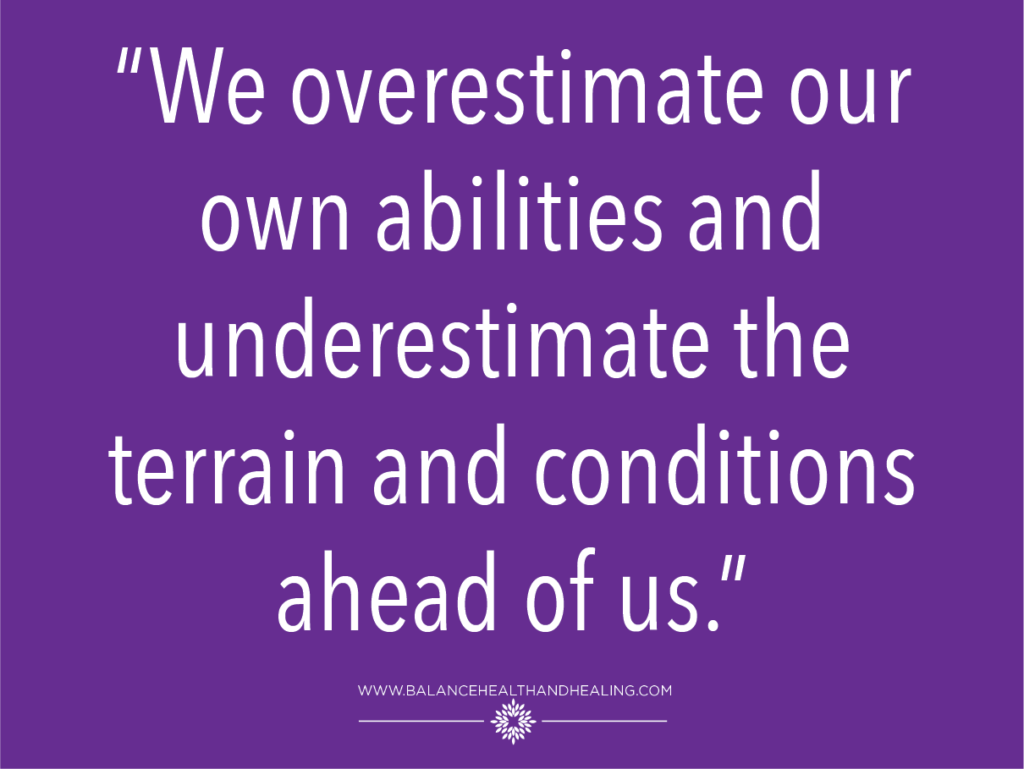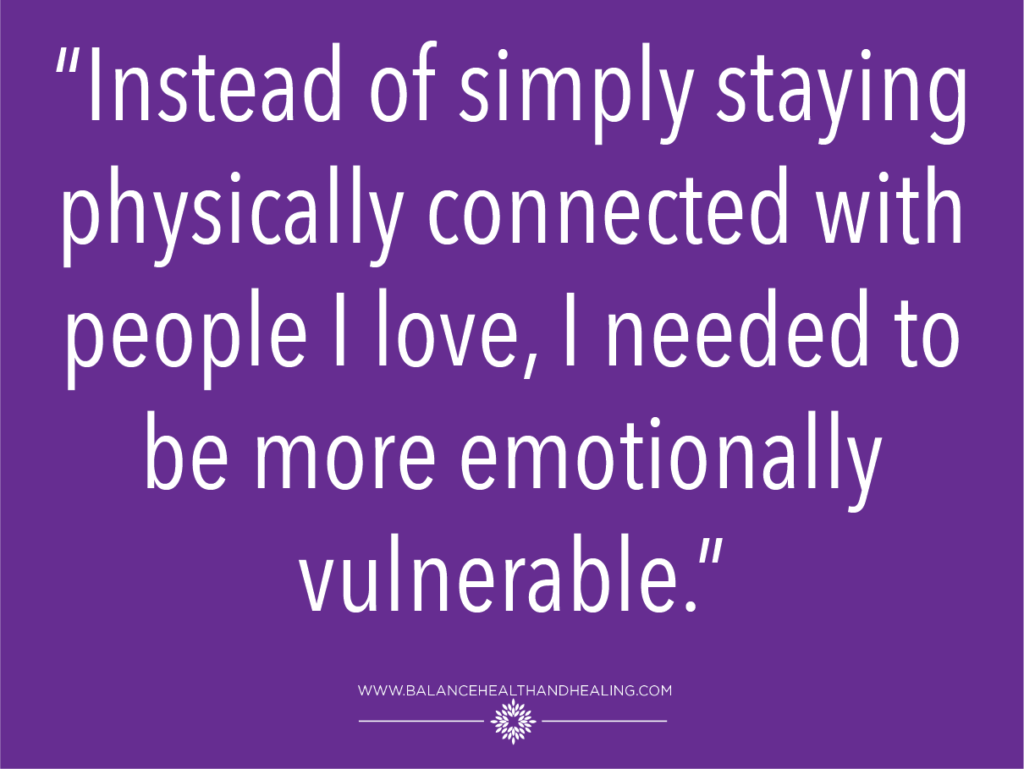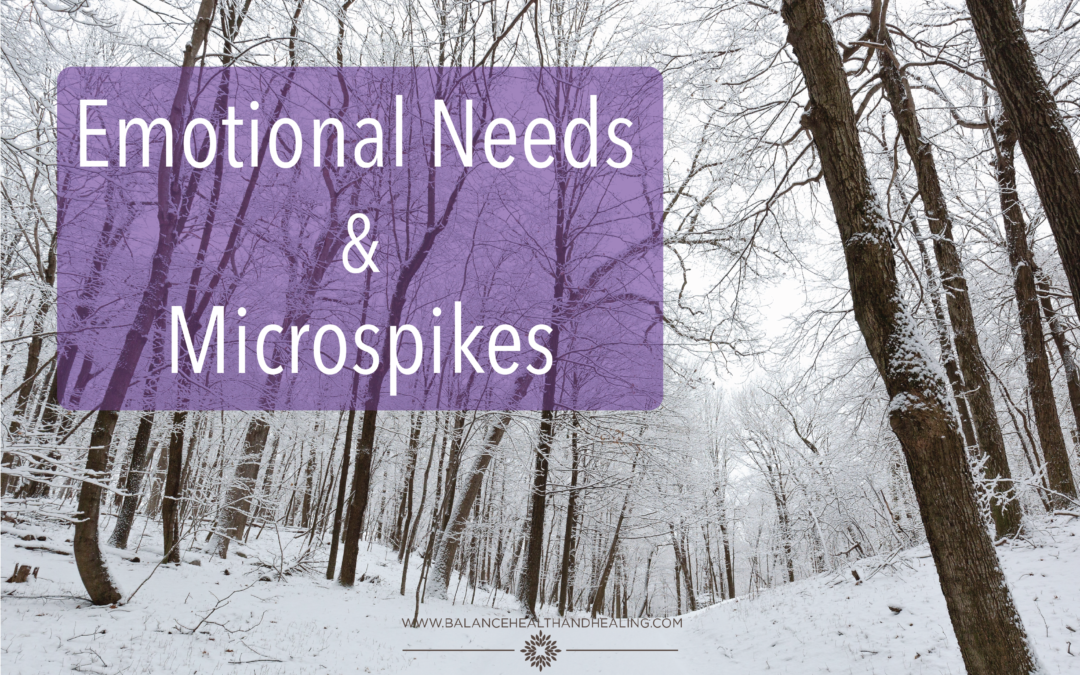“Deep breath and don’t look down,” I counseled myself with frozen fingers cemented to the bolted chains, as my shoes slipped beneath me on the icy cliff face. I wished for the hundredth time that day that I had brought my microspikes. It also wasn’t the first time during my December summit up Angel’s Landing in Zion National Park, that I wondered if this was a good idea.
Winter hiking is one of my favorite times to hike so it wasn’t like me to be unprepared hanging on the edge of a cliff. But here I was, too committed to turn back, and also unprepared to summit without assuming serious risk of injury, or worse.
Luckily my hike up and down Angel’s Landing that day was uneventful and completed safely. The views were breathtaking, but I also wouldn’t recommend ever doing that hike in the same conditions without being more prepared. While some of my safety on Angel’s Landing was due to my own skill and experience as a hiker; a part of it was also due, truly, to luck. This experience reminded me of the importance of not overestimating my skills and underestimating the trail and conditions ahead of me. This experience humbled me.
 Sometimes this is our experience on the trail. We overestimate our own abilities and underestimate the terrain and conditions ahead of us. We become complacent with using our favorite tools, that most often, are sufficient (water, hiking poles, good sturdy shoes, etc.,).
Sometimes this is our experience on the trail. We overestimate our own abilities and underestimate the terrain and conditions ahead of us. We become complacent with using our favorite tools, that most often, are sufficient (water, hiking poles, good sturdy shoes, etc.,).
Moving into metaphor, we may have found our favorite tools to manage our life experiences and emotional needs. We use those consistently and neglect other tools because we can. When our social/emotional terrain is predictable and steady, those tools may be all we need. For example, my favorite tools are consistent sleep, daily chocolate, getting outside in nature weekly, reading good books, and spending time with a friend at least once a week. These tools are usually enough to help me maintain my emotional well-being.
But then the terrain changes. A winter storm blows in and the trail becomes icy and I need those microspikes I left at home.
This happened to me last winter. Christmas break, 2019, I found myself in exhausted tears most nights. I felt overwhelmed and raw. I felt sad and dark. This experience wasn’t unfamiliar as I’ve managed depression in the past. But despite consistent use of my favorite tools, they weren’t cutting it for my emotional well-being. I knew I needed to dig deeper into my emotional backpack.
Dusting off neglected tools, or using brand new ones, is a vulnerable experience. To admit we need more is scary and brave.
Instead of simply staying physically connected with people I love, I needed to be more emotionally vulnerable. This included a tearful, honest conversation with my husband.  This included honest conversations with a couple of my close friends who I knew I could trust and offer perspectives I needed to hear. This included planning with my sitter to better address my needs as a depleted, tired, working mom. And finally, it also included scheduling sessions with my therapist and contacting my doctor to get back on anti-depressants.
This included honest conversations with a couple of my close friends who I knew I could trust and offer perspectives I needed to hear. This included planning with my sitter to better address my needs as a depleted, tired, working mom. And finally, it also included scheduling sessions with my therapist and contacting my doctor to get back on anti-depressants.
Just like my summit up Angel’s Landing last month, my experience last year humbled me. It can feel frustrating to confront our own shifting emotional landscape and needs. It is humbling to re-learn what is within my control and not. I can’t control the terrain or conditions. But what IS in my control, are the tools I put and use in my backpack.
It’s great that I have a variety of tools that I can use regularly that are sufficient for most of my “sunny days, smooth trail” conditions. But when the trail turns icy and precarious, we don’t want to be stranded without our microspikes. We need to be humble enough to dig inside our backpacks (be vulnerable) and rely on other tools designed to help us with heavy emotional hiking.
The good news is, there are so many tools out there to help us through these shifting emotionscapes.
Here are just a few: There are friends, therapists, doctors, and loved ones who can join us on the trail. There are activities that nourish us and help us put one foot in front of the other. There are perspectives, self-talk, self-compassion, meditation, and other cognitive tools that help ease our distress. There is purpose, meaning, and values that we can anchor into that remind us the icy, steep trail is worth it.
And like everything in life, change is the only constant. The ice will melt, the incline will ease, and the sun will come out again. And the views waiting for us at the top, are indeed, breathtaking.

